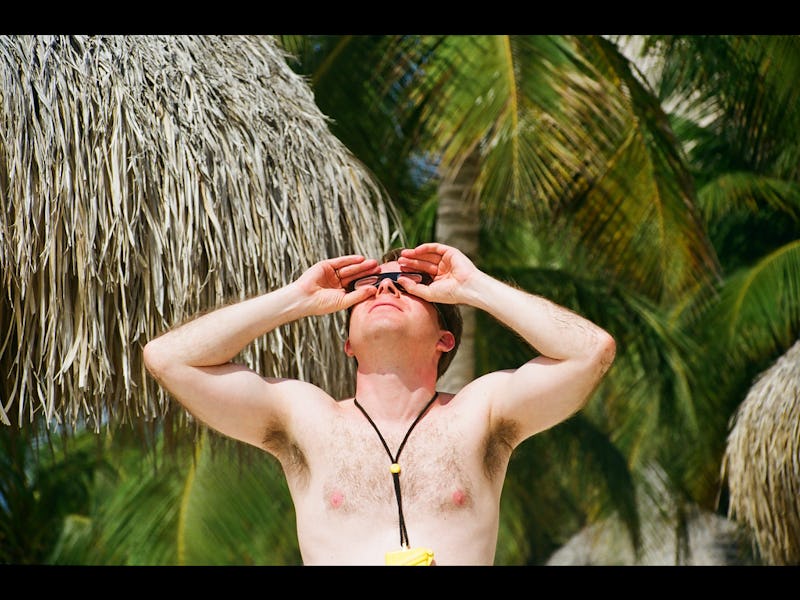How to Become an Eclipse Chaser
"Before you die, you owe it to yourself to experience a total solar eclipse."

In 1994, David Baron, then a science correspondent for NPR, visited astronomer Jay Pasachoff to report on a looming partial solar eclipse, in which the moon would pass over just a portion of the sun. Pasachoff answered some mundane answers about where to view the eclipse before leaving Baron with some unforgettable words:
“Before you die, you owe it to yourself to experience a total solar eclipse.”
Earth’s next total solar eclipse will arrive spectacularly in the early hours of August 21 and travel in a thin, 70-mile wide strip across the width of the U.S., from Oregon to South Carolina. Baron plans to position himself directly in the eclipse’s path for his sixth eclipse, standing atop Rendezvous Peak in Wyoming’s Teton Range. Baron, an eclipse chaser and the author of American Eclipse, is bringing along 13 family members, with the goal of “seeing the moon’s shadow as a palpable curtain of darkness descending from outer space.”
Baron chasing an eclipse with friends in Australia in 2012.
It’s a cosmic event that Baron is hooked on, and he has traveled around the globe to experience the eerie onset of midday darkness. Four years after receiving Pasachoff’s advice, Baron flew down to the south Caribbean island of Aruba, as the moon’s shadow was forecast to sweep over the area. Baron experienced the eclipse from the island’s white sand beach, and — when the moon completely moved into the path of the sun — something deep inside Baron’s nexus of neurons, intellect, and emotion permanently changed.
“It flipped a switch in my brain,” he says. “The experience just absolutely blew my mind. I’m not a traditionally religious person — but it felt like seeing God.”
The August 21, 2017, path of totality
Total solar eclipses are rare. They occur somewhere on Earth about twice every three years, but this doesn’t mean they’re accessible. An eclipse could pass over the Pacific Ocean, Antarctica, or just graze an island. The fact that this eclipse is not only a total solar one but also slashing through the country means that it’s a universally attainable phenomenon, something human cultures have experienced for thousands of years — even during battles.
“It’s something we can all experience,” Baron says.
Although every eclipse is unique, they also repeat themselves every 18 years, in periods called Saros cycles, explains Baron. Yet, this periodicity isn’t a clean 18 years — it’s 18 years, 11 days, and 8 hours. This means the moon’s orbit will bring it into the path of the sun in nearly the same way it did 18 years and 11 days ago, but the world will have spun for another eight hours, so the moon’s shadow falls on a completely different part of the planet. In an astronomical sense, the cross-country eclipse on August 21, 2017, last occurred in Europe, which Baron experienced just over 18 years ago, in 1999. Having witnessed the European eclipse, Baron will soon complete this eclipse’s Saros cycle.
The moon's shadow falling on Earth during a total solar eclipse.
To prepare for an eclipse, Baron encourages picking up a pair of eclipse glasses, which allow you to safely watch as the moon incrementally “invades” the sun. Solar shades should only be removed when the moon has completely blotched out the sun, darkening the world and exposing the sun’s ghostly atmosphere (only visible during a total solar eclipse). Inverse outlines NASA’s eclipse viewing guidelines here.
The event will pass quickly — probably two minutes — depending on where you’re standing. If there are animals around they will likely react, like roosters roosting and birds flying around, confused by the onset of darkness. And then it will be gone. “It all happens so fast, and there’s so much to take in,” says Baron.
As of 2017, Baron is still 60 total solar eclipses behind Pasachoff, who has perhaps experienced more eclipses than any human being in history — a whopping 65. Few will ever attain this number, but Baron hopes to convince folks to experience their first.
“I see it as my job now to pay my advice forward,” he says.